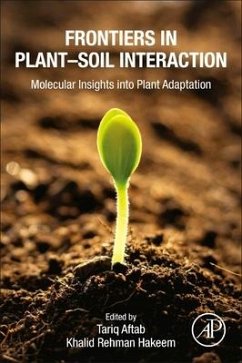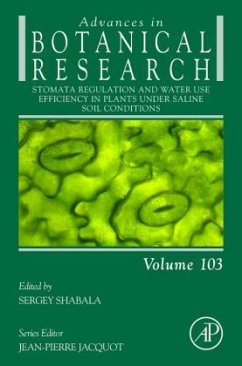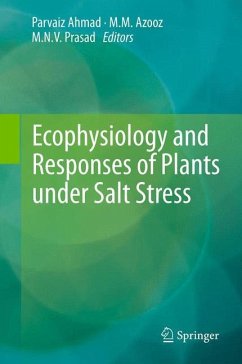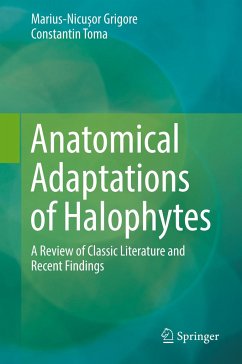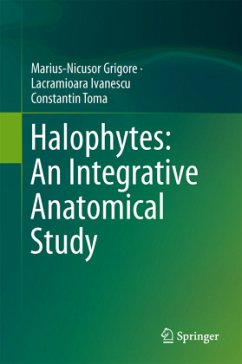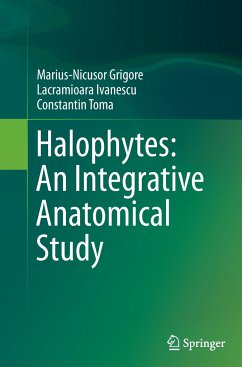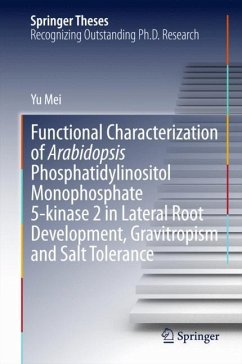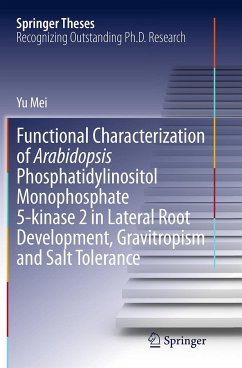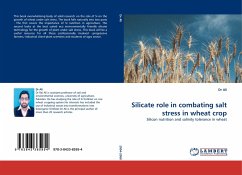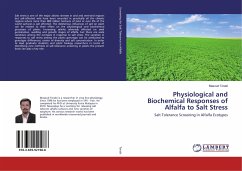
Physiological and Biochemical Responses of Alfalfa to Salt Stress
Salt Tolerance Screening in Alfalfa Ecotypes
Versandkostenfrei!
Versandfertig in 6-10 Tagen
46,99 €
inkl. MwSt.

PAYBACK Punkte
23 °P sammeln!
Salt stress is one of the major abiotic stresses in arid and semi-arid regions but salt-affected soils have been recorded in practically all the climatic regions where more than 800 million hectares of land or over 6% of the world surfaces is salt affected. The deleterious influences of salt on plant can be related to their effect on the physiological and biochemical processes of plants. Increasing salinity adversely affected on seed germination, seedling and growth stages of alfalfa, but there are wide variations among the ecotypes in response to salt stress. The variation in responses to sal...
Salt stress is one of the major abiotic stresses in arid and semi-arid regions but salt-affected soils have been recorded in practically all the climatic regions where more than 800 million hectares of land or over 6% of the world surfaces is salt affected. The deleterious influences of salt on plant can be related to their effect on the physiological and biochemical processes of plants. Increasing salinity adversely affected on seed germination, seedling and growth stages of alfalfa, but there are wide variations among the ecotypes in response to salt stress. The variation in responses to salt stress among the plants genotype can be attributed to genotypic differences, center of diversity and salt concentration. In order to lead graduate students and plant biology researchers in terms of identifying new methods of salt tolerance screening in plants the present book can play a key role.



